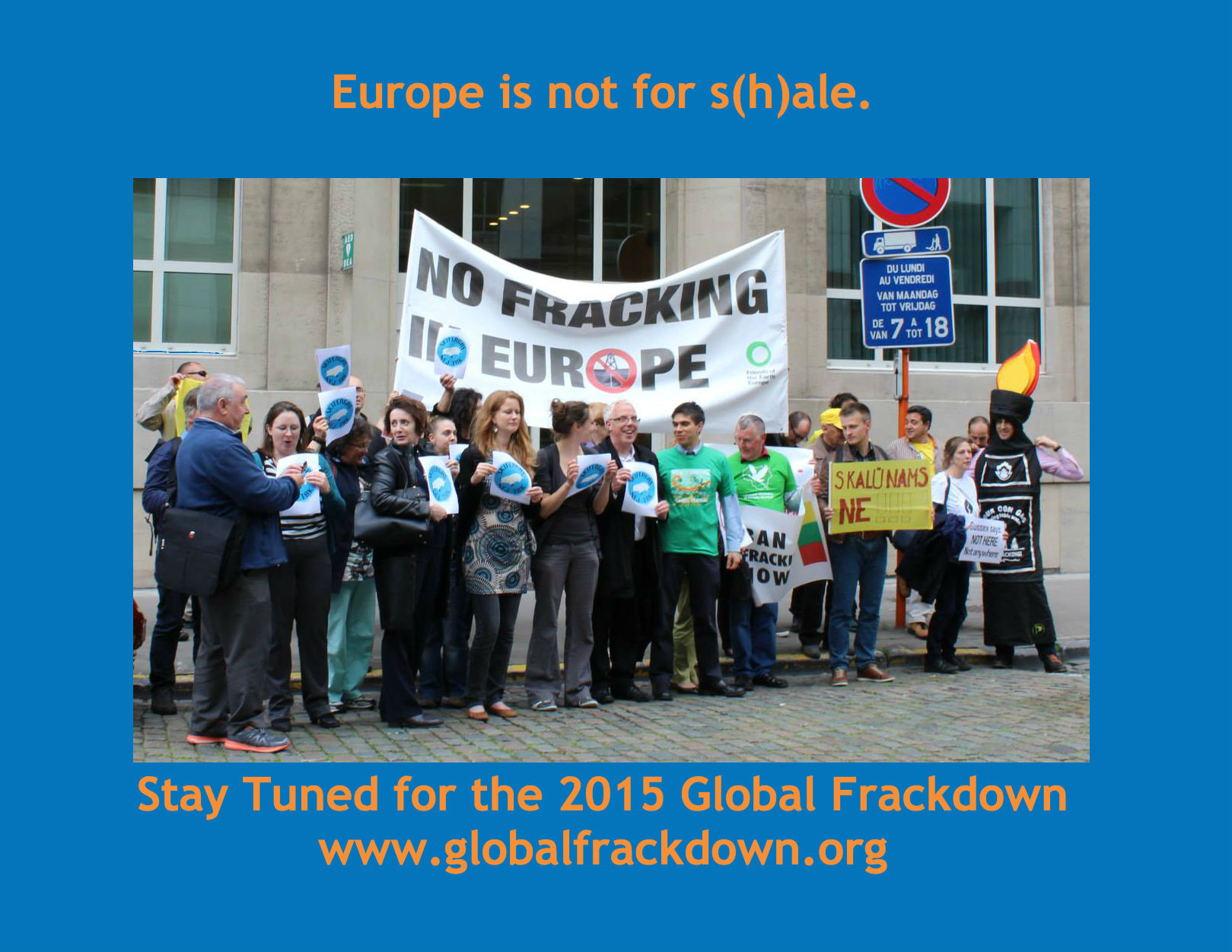I wish that I could say that I planned it this way. The World Gas Union recently gathered in Paris, where ExxonMobil CEO Tillerson blasted European Union countries that have adopted a ban or a moratorium on fracking. And at the exact same time, activists from around Europe gathered in Brussels to share a very different message at the “Europe is Not for Shale” conference. Alas! It was a lucky coincidence. Planned or not, the two concurrent events provided a nice contrast between the pro-gas corporate roadshow in Paris and the grassroots efforts to resist fracking occurring in Brussels.
Together with Friends of the Earth and the Green group in the European Parliament, Food & Water Watch worked with groups from Poland, the UK, Spain, and Germany on how fracking is progressing in Europe and how Member States are failing to keep tabs on the shale gas industry. Gathering evidence over the last few months, we found that the European Union – and especially Member States like the UK and Poland that are keen to get fracking started – continues to fail to adopt strict binding rules on fracking that could help to gather data, provide greater transparency, and hold shale gas exploration companies accountable.
In January 2014, the European Commission issued a recommendation that offered non-binding guidelines to Member States. We found that this recommendation has not had any impact on the way pro-shale Member States manage this industry. Given its non-binding nature, Member States such as the UK and Poland have chosen to largely ignore the recommendation. Admittedly, several parts of the recommendation do not even offer useful guidance to those who might be interested in clamping down on the risky business of fracking. The recommendations are so vague that they fall far short of reassuring local populations across the EU that fracking operations in their area will not negatively impact the water they drink, the air they breathe, and the climate that we all depend on.

Another message that came through loud and clear from the Europe is Not for Shale conference in Brussels is that the plans for Big Oil & Gas to start fracking in Europe actually offer an opportunity to start dismantling their narrative about “natural gas as a bridge fuel.” The perspective of investing billions into fracking raises several important questions: Where does this bridge offered by natural gas lead to? And are there really no alternatives? For example, instead of drilling for shale gas, we should invest in solutions such as greater energy efficiency of buildings, combined with investments in renewable heating, efficient district heating, and heat pumps. These solutions would reduce gas consumption, reduce gas imports from places like Russia or Azerbaijan, create jobs, cut emissions, and address fuel poverty.



